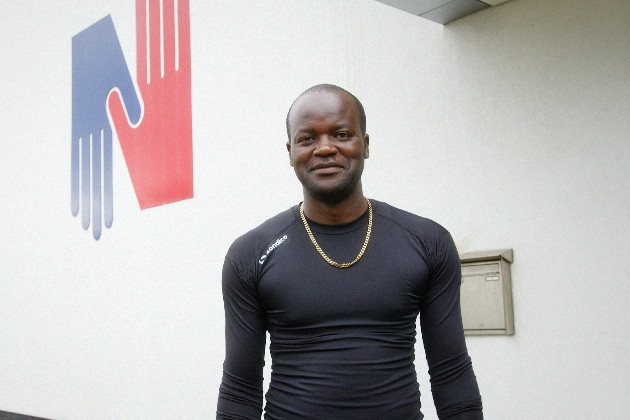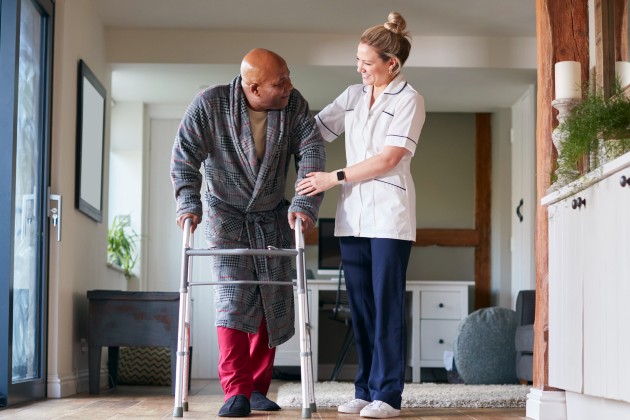Samantha Mcloughlin qualified as a non-medical prescriber in 2017 and is keen to encourage other nurses to consider the qualification for independent prescribing. She answers your questions.
What qualifications do you need to be eligible for the non-medical prescriber programme?
Under the new NMC standards, entry onto a programme is determined by whether you can provide evidence that you have the necessary skills, knowledge and experience to sign up.
It is essential to have workplace support, specifically an experienced member of staff to act as your clinical mentor. This role is called the designated prescribing practitioner. This is usually a GP or an experienced nurse prescriber. Please check this with your local university.
They will teach you and support you with the various elements of the course, including your consultation techniques, learning about pharmacodynamics (the effects of drugs in the body and the mechanism of their action), pharmacokinetics (the movement of drug into, through, and out of the body) and tools to support safe prescribing.
How did you prepare?
I had about 8 years post-registration experience as a practice nurse when the course was offered to me. I first completed a physical assessment and clinical reasoning course (PACR).
The focus on that course was on diagnostic skills and clinical and holistic history-taking – to get the full picture of the patient sitting in front of you – in taught and practical sessions. With the support of my workplace mentor, that took me about 4 months to complete. It provided a context that would set me up for the non-medical prescribing programme and taught me invaluable assessment and examination skills.

What’s the difference between the V150 programme and the V300 independent prescribing programme?
The main difference between the V150 and V300 is the scope of the medications that can be prescribed by the clinician. The V150 is a standalone program for practitioners to prescribe from the nurse prescribers’ formulary (NPF).
It takes approximately 6 months to complete. It allows nurses to prescribe from a restricted list of drugs, appliances, catheters, wound dressings and skin care products. Find out more.
The V300 is an independent prescribing qualification that allows the clinician to prescribe from the British National Formulary (BNF) within their scope of clinical competence. The course includes 26 days of learning, including 14 online contact days and 12 direct learning days. Students must attend all sessions.
The course also includes 90 hours of supervised learning in practice where you’ll be supported by your designated prescribing practitioner.
It was the hardest thing I’ve ever done in my nursing career so far, but absolutely worth it
What’s the significance of ‘within their scope of clinical competence’?
Registered nurses reflect and work within their clinical competence and are bound by the NMC Code of Conduct. This is no different, and as a prescriber you’ll need to provide evidence you’re working safely, following evidence-based practice and within the code of conduct.
The Royal Pharmaceutical Society Competency Framework is used to support safe prescribing, and as a clinician you’ll need to demonstrate evidence of safe compliance through prescribing audits, and clinical supervision in your prescribing practices.
Are there different courses for different areas of prescribing expertise?
If you’re completing the V300 course, you can tailor your prescribing to your field of specialty. Your scope of practice may change across your career.
What’s the course like?
It’s a good mix of on-the-job learning and classroom learning but does have a heavy academic element. The course comprises of numerous written assessments and presentations, a practical exam to ensure you can write a hand-written prescription correctly and an advanced pharmacology exam. You must also provide evidence of your learning in practice and keep a portfolio of your work.
What’s the pharmacology exam like?
It’s an advanced pharmacology exam, taken under strict conditions. In some instances the exam can now be sat remotely, however in 2017 I had to do this exam in a formal setting and get 80% to pass (100% for the maths element). It was the hardest thing I’ve ever done in my nursing career so far, but absolutely worth it.
Is there a vocational element too?
Yes. I needed to put in at least 90 workplace-based vocational hours with a prescriber. I was fortunate that I had another advanced nurse practitioner at my surgery who supported me, as well as a GP who worked with me, overseeing my training, and helping me with advice on how to use the formulary and using the NICE guidelines.
Students also have to provide evidence of learning outside the classroom on this course.
What benefits are there to being a nurse prescriber?
It’s made me a better practitioner. You have autonomy and full responsibility for your patients, with no more waiting for a doctor to sign the prescription for you. There’s nothing more rewarding than seeing a patient looking and feeling well after your care and treatment.
Nursing staff often have strong relationships with patients and speedier access to appointments compared to trying to see a GP. In addition, nurses often have longer appointments available, and we can provide valuable continuity, which improves patient care.
Being a prescriber working with general practice colleagues gives you greater knowledge of diseases, treatment and services while also allowing you to better apply your chronic disease expertise and improve the patient experience.
How much does it cost?
Typically between £1,500 and £2,500. There may be funding available via your integrated care board (ICB)'s continuing professional development fund. You may also want to consider applying for a grant from the RCN Foundation.
I had a wonderful lead nurse at the time, who not only encouraged me to do the modules, but who also accessed centralised funding, therefore the course came at no personal cost to me. They supported me in the application process and guided me through the training.
Where can you find out more?
Take a look at the NMC guidance on becoming a prescriber.
Further information
- Non-medical prescribing
- Use the NMC's course search facility to find an approved nurse or midwife prescribing programme.
- Find out more about the requirements to become a nurse prescriber.
- At RCN Congress 2024, a resolution was passed to lobby government to improve access to controlled drugs in residential care homes.








